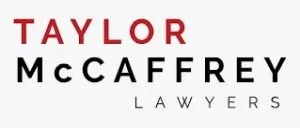My home of Winnipeg once proudly touted itself as the "Chicago of the North" based on its rapid growth and emergence as a city with a promising future. To utter those same words today conjures up images of a city mired in the past, with attitudes and actions befitting what should be long-forgotten times, the "bad old" days.
Virtually everyone is now painfully aware of the shocking story of young athletes being sexually abused by a predator employed as a video coach with the Chicago Blackhawks. The coach obtained sex from at least one young player in exchange for promises of playing opportunities and threats of being passed over by coaching staff.
Sad enough (but not surprising) is that someone in a position of power abused that power and victimized vulnerable, young players for his personal benefit. Worse however and the real scandal is how the strong personalities of those in charge, who could have and clearly should have done more, failed the young players and all of us by doing nothing despite being aware of the allegations. More junior management and others who might well have done something were left to believe things were being addressed by the senior decision makers, and so they too stood by.
The cold and disturbing reality is that what had occurred was not deemed important enough to gain the real attention and responses of anyone. This was compounded by a system which inexcusably allowed nothing to happen. There was nothing in place systemically to guarantee the "right thing" would be done (or anything for that matter) regardless of willful blindness, mistaken trust in others, or other causes.
What happened instead? The Blackhawks won the Stanley Cup, the video coach was part of the celebrations and then moved on to find other victims elsewhere. It took roughly a decade for the story to come out. Eventually some people lost jobs. Lives were irreparably harmed.
This is far more than a hockey story. It tragically and unequivocally unmasks a society where the focus is too often on winning a championship (or making profit) rather than providing a safe workplace. It reveals a broken system which pays lip-service to safety but offers no real guarantees.
This is not from the distant past, when admittedly things were different. This is from 2011 a time by which we should have been demanding far more.
What occurred with the Chicago Blackhawks cannot be repeated in sport, society as a whole or in the context of any workplace. Employers must learn from what occurred and do better. This is not complicated. It means education on what is required, embracing that in a real way, and walking the talk.
The law has long required employers to protect employees from safety hazards in the workplace. This includes taking "all reasonable steps" to ensure a respectful workplace as mandated by Manitoba's Workplace Safety and Health Act that is free from harassment. The Act defines "harassment" as:
- objectionable conduct that creates a risk to the health of a worker; or
- severe conduct that adversely affects a worker's psychological or physical well-being.
Conduct is "objectionable" if it is based on human rights considerations, including race, creed, religion, colour, sex, sexual orientation, gender-determined characteristics, marital status, family status, source of income, political belief, political association, political activity, disability, physical size, weight, age, nationality, ancestry or place of origin.
Conduct is "severe" if it could reasonably cause a worker to be humiliated or intimidated and if repeated. Even if it occurs only once, conduct could still be severe if it has a lasting, harmful effect on a worker.
Reasonable conduct of the employer or a supervisor in managing and directing workers or the workplace is not harassment.
As part of taking all reasonable steps to ensure a respectful workplace, the Act specifically requires employers to have policies regarding harassment. Those policies are supposed it be meaningful and are required to include the following statements:
- every worker is entitled to work free of harassment;
- the employer must ensure, so far as is reasonably practicable, that no worker is subjected to harassment in the workplace;
- the employer will take corrective action respecting any person under the employer's direction who subjects a worker to harassment;
- the employer will not disclose the name of a complainant or an alleged harasser or the circumstances related to the complaint to any person except where disclosure is
(i) necessary to investigate the complaint or take corrective action with respect to the complaint, or
(ii) required by law;
- a worker has the right to file a complaint with the Manitoba Human Rights Commission; and
- the employer's harassment prevention policy is not intended to discourage or prevent the complainant from exercising any other legal rights pursuant to any other law.
The harassment prevention policy also must provide information on:
- how to make a harassment complaint;
- how a harassment complaint will be investigated; and
- how the complainant and alleged harasser will be informed of the results of the investigation.
Manitoba's Human Rights Code also provides protection. No person who is responsible for a workplace to which the Code applies shall:
- harass any person who is participating in the activity or undertaking; or
- knowingly permit or fail to take reasonable steps to terminate the harassment of one person who is participating in the activity or undertaking by another person who is participating in the activity or undertaking.
No employer and no one responsible for its operations is required to be "perfect". Instead, they must not "knowingly permit" harassment, or "fail to take reasonable steps to terminate" harassment.
What is "sexual harassment"? The Code defines it as:
- a series of objectionable and unwelcome sexual solicitations or advances of a sexual solicitation;
- an advance made by a person who is in a position to confer any benefit on, or deny any benefit to, the recipient of the solicitation or advance, if the person making the solicitation or advance knows or ought reasonably to know it is unwelcome; and/or
- a reprisal or threat of reprisal for rejecting a sexual solicitation or advance.
None of this should be controversial or fairly can be called unreasonable or onerous. In theory, it should be simple.
Examining the Chicago Blackhawks situation through a legal lens portrays an abject failure in all respects to do what was required. It is a clear lesson for Manitoba employers of what not to do.
Beyond doubt what occurred was sexual harassment as the video coach was in a position to confer or deny a benefit on the young players, and knew or ought reasonably to have known his sexual solicitations were unwelcome. Further, the threat of reprisal for rejecting the solicitations, even if not carried out, would itself be sexual harassment.
Those responsible may not have knowingly permitted this harassment (I have seen nothing to suggest they were aware it was going to take place and stood by) but failed to take reasonable (or any) steps to terminate it once it was brought to their attention. Instead, they intentionally did nothing other than ensure the complaints did not act as a distraction from the march to the Stanley Cup. They also failed to take reasonable (or any) steps to terminate the harassment by not having a meaningful process in place to protect the players. Despite the obviously poor decisions made by those in power, the system itself should have acted as a failsafe mechanism to ensure proper and timely action was taken. It did not.
If it were your child being victimized, wouldn't you demand better?
We all have to do better, and can do so through education and enhancements to your workplace policies and practices dealing with harassment. I offer the following as one option.
Recognizing that people are imperfect and don't always do what they should the system must be built so to ensure anyone who has knowledge of apparent wrongdoing (except of course a victim, who should have the right to decide for themselves) is faced with a positive obligation to come forward and report. If they do not they face discipline. This is more than simply offering a risk free opportunity to choose to report, or not. It is sending the message that silence is unacceptable.
The system must offer the certainty that the person receiving the report (likely an identified and objective third party, with no temptation to take short cuts or avoid unearthing an unpleasant reality) is required to move the process forward, regardless of anything else. There will be no delay or ignoring of what is there due to other priorities or considerations. The process will unfold as it does, with whatever the consequences.
Those reporting must know there will not and cannot be reprisals for reporting.
Many times decision-makers may not intentionally be making "bad" decisions that favour other interests to the detriment of safety. It may be they are too close to the situation to be objective. It may be they are too busy with other tasks to dedicate the necessary energy to doing the right thing. or they may assume or understand someone else has things under control. The introduction of the mandatory reporting requirement to an objective and responsible third-party does away with these excuses.
A system such as this should offer genuine protection against actions by those within the workplace who may have real power over conditions of work or career opportunities and be seen as beyond challenge because of who they are, and third parties such as clients who may wield power through their ability to remove their business. It should provide the protection all of us, and our children, are entitled to receive.
The content of this article is intended to provide a general guide to the subject matter. Specialist advice should be sought about your specific circumstances.

